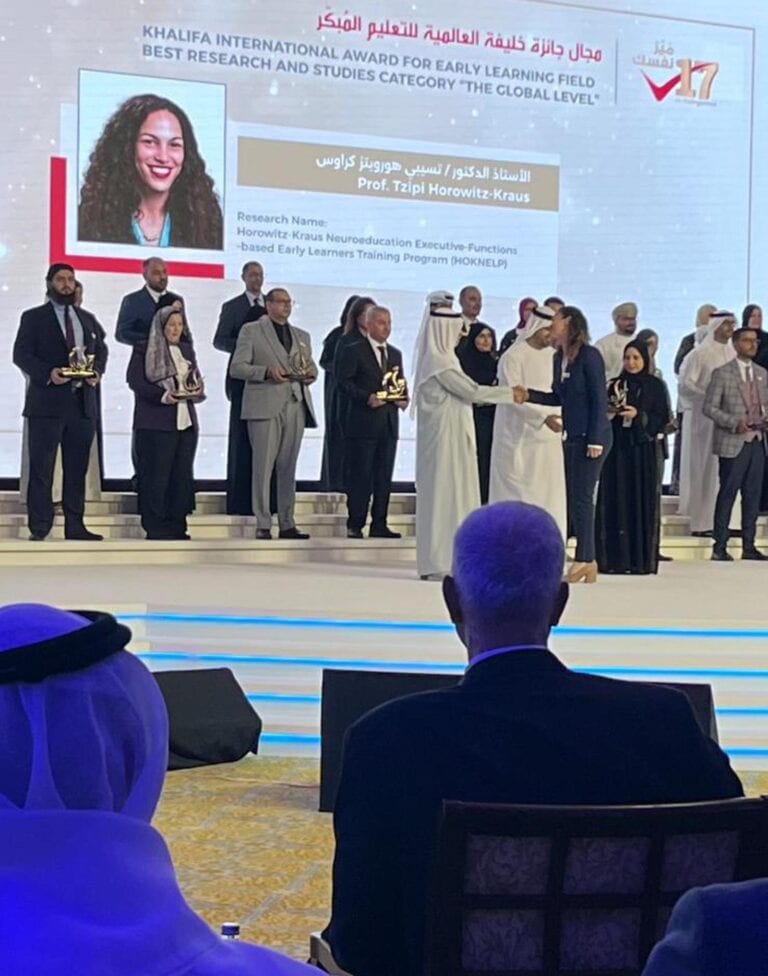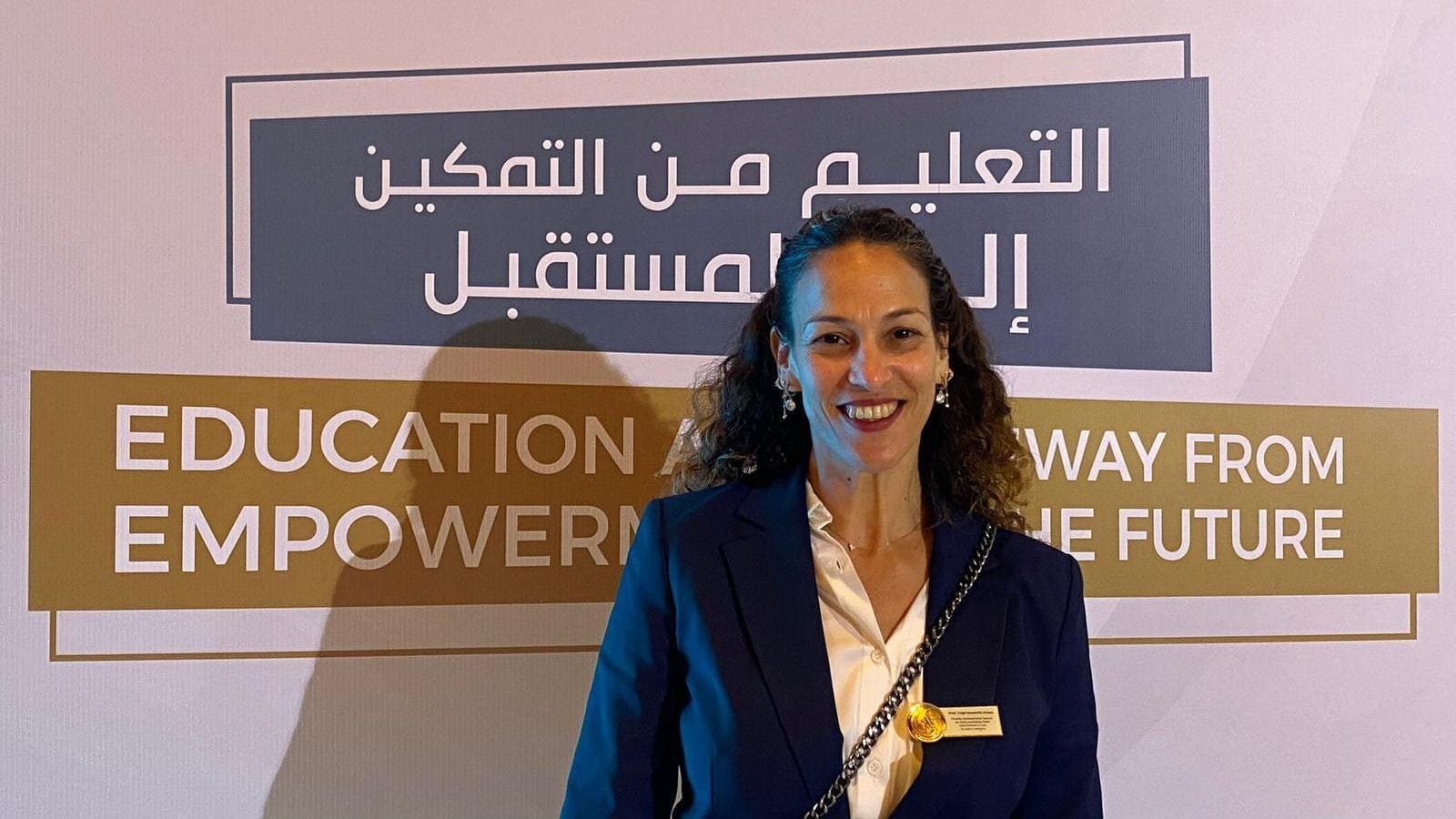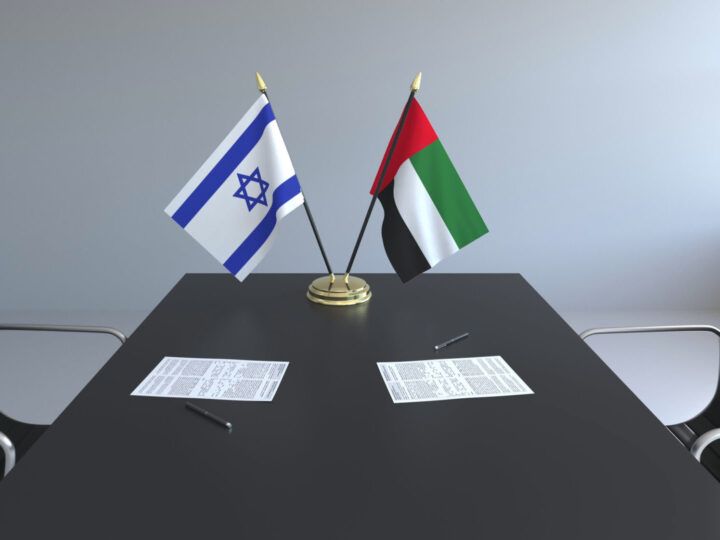An Israeli academic has been honored with The Khalifa Award for Education for her research on how children learn to read.
The Emirati award was given to Tzipi Horowitz-Kraus, an associate professor at The Technion – Israel Institute of Technology, who was one of four winners from outside the United Arab Emirates.
The Khalifa Award for Education, which has both the UAE president and prime minister among its patrons, was founded in 2007 to advance standards of education at all levels in the Emirates and across the whole Arab world.
The latest awards were presented by UAE president Sheikh Mansour bin Zayed Al Nahyan at an education conference held in Abu Dhabi on May 14 and 15. The ceremony was also attended by Yifat Turbiner, wife of the Israeli ambassador to the UAE, who is responsible for cooperation in innovation and academic relations.
“It is hard to describe the warm embrace I received, not only from the international judges and hosts, but also from the Emirati royal family, who sponsored the event,” said Horowitz-Kraus. “I believe this is the beginning of a wonderful friendship and the start of fruitful and exciting collaboration.”

Horowitz-Kraus is based at The Technion’s faculties of Education in Science and Technology and of Biomedical Engineering, and specializes in brain imaging research to help children who have difficulties learning to read.
In many cases the children have dyslexia, ADHD (attention deficit hyperactivity disorder), epilepsy, auditory processing difficulties, psychiatric disorders or other medical conditions. Others suffer from “environmental deficits,” such as a lack of exposure to literacy or overexposure to screens.
Horowitz-Kraus’s research focuses on the characterization of the neural networks underlying language and reading acquisition in such children, using brain imaging tools such as electroencephalogram (EEG) and Magnetic Resonance Imaging (MRI).
She also works on adapting intervention programs for each of these disorders, and on preventing such language and reading difficulties.

“The award supports the importance and uniqueness of our research, which includes integrating tools from brain research to understand the basic processes supporting language and reading acquisition and examining the impact of intervention programs on these processes,” Horowitz-Kraus said.
“The Emirati award shares our aspiration for a better future for children, based on quality education from an early age. This aspiration transcends cultures and fills me with hope for a better future and for building a bridge between countries, based in part on joint research.”















